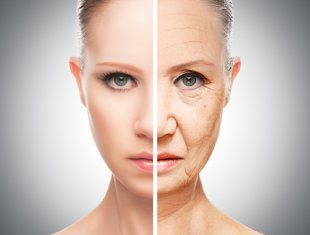Air Pollution Is Prematurely Aging Your Skin: Here’s How You Can Protect Yourself
New research reveals that toxic fumes in urban areas are giving city-dwellers wrinkles and age spots.
By Reynard Loki / AlterNet

Photo Credit: Evgeny Atamanenko/Shutterstock
Air pollution is a known health hazard, linked to a number of life-threatening ailments, including cancer and a host of diseases that impact cardiovascular and respiratory health. The World Health Organization estimates that around 7 million people worldwide die prematurely due to exposure to air pollution.
But recent research, the Guardian reports, has revealed a more apparent effect of air pollution on human health: its negative impact on skin. “UV [damage from the sun] was really the topic in skin protection for the last 20-30 years,” Jean Krutmann, director of the Leibniz Research Institute for Environmental Medicine in Germany, told the paper. “Now I think air pollution has the potential to keep us busy for the next few decades.”
Polluted air contains a dangerous mixture of toxic substances. A major component are polycyclic aromatic hydrocarbons (PAHs), which are produced by burning coal, oil, gasoline and other organic materials like wood, tobacco and trash. There are other, less obvious sources of PAHs, too, like pizza shops and steakhouses that use wood-fired stoves.
Particulate matter, or PM, a mixture of small liquid droplets and tiny inhalable particles no bigger than the diameter of a human hair, is also a serious concern. “Some are emitted directly from a source, such as construction sites, unpaved roads, fields, smokestacks or fires,” notes the EPA. “Most particles form in the atmosphere as a result of complex reactions of chemicals such as sulfur dioxide and nitrogen oxides, which are pollutants emitted from power plants, industries and automobiles.”
“What is very clear is that PMs are a problem for skin,” said Krutmann, whose research has revealed that these minute particles are tied to the formation of wrinkles and age spots.
Automobiles and other vehicles are also the source of nitrogen oxide (NO2), a hazardous chemical produced and released during the combustion of fuel that can react with other substances to form smog and acid rain. Krutmann’s latest study, published in the Journal of Investigative Dermatology, has shown that traffic-related air pollution, in the form of NO2, accelerates the skin’s aging process. His team looked at residents of Germany and China and found that even a minor increase in air pollution increased the development of facial age spots by 25 percent.
Scientists also suspect that skin can be damaged by low-level ozone, which is produced when the sun’s ultraviolet rays interact with the exhaust fumes resulting from fuel combustion. Giuseppe Valacchi, an associate professor in physiology at the Department of Life Sciences and Biotechnology at the University of Ferrara in Italy, told the New York Times that ozone oxidizes lipids, fats that provide a natural protective barrier for the skin that helps keep moisture in and dirt out. Without this barrier, skin is easily damaged. “It’s as if ozone were designed specifically to injure our skin,” Valacchi said.
“With traffic pollution emerging as the single most toxic substance for skin, the dream of perfect skin is over for those living and working in traffic-polluted areas unless they take steps to protect their skin right now,” Mervyn Patterson, a cosmetic doctor at U.K.-based clinic Woodford Medical, told the Guardian. “Unless people do more they will end up wearing the pollution on their faces in 10 years’ time. It is definitely something people now need to take seriously.”
Most people are used to using sunscreens to protect their skin, but as Gilly Munavalli, medical director of Dermatology, Laser & Vein Specialists of the Carolinas in Charlotte, N.C., told the New York Times, “You can protect yourself from UV damage with sunscreen, but sunscreens aren’t effective for pollution. The best thing we can do now is apply antioxidants, vitamins C and E.”
The beauty industry is definitely taking it seriously, responding to this emerging skin threat with new, so-called “pollution protection” skin care products, many of which contain antioxidants, as well as a host of herbal ingredients.
Origins, a U.S. cosmetics brand, was one of the first beauty companies to tackle this issue, releasing its Mega-Defense line of face oils and sunscreens that the company claims can “help defend skin from pollution, dehydration and environmental stress.” The company says its Mega-Defense Barrier-Boosting Essence oil, which contains vitamin C as well as the seed oils of camellia, evening primrose and lady’s thistle, “helps boost skin’s barrier against environmental assaults that can damage and age skin.”
Elizabeth Arden, a Florida-based global beauty company, says the “smart polymers” in its Prevage City Smart Broad Spectrum SPF 50 Hydrating Shield “form an invisible skin shield to screen out skin-dulling pollutants.” The French luxury cosmetics company Clarins developed its Detox Booster with green coffee extract, which is rich in antioxidants that can help prevent skin cell damage. American skincare giant Clinique created its City Block Purifying Charcoal Clay Mask and Scrub with natural bamboo charcoal and kaolin clay, which the company says can “help remove pollution and impurities.”
But perhaps the simplest and easiest thing you can do for your skin, particularly if you live in a high-traffic urban area, is just keep it clean, since the PMs that attach to your skin’s surface don’t cause damage right away. When you get home from a day outdoors, just wash your face with a good cleanser.
“Use cleansers that will wash off all the bad molecules but not strip key oils,” Carl Thornfeldt, founder of the Epionce skin care line, told the New York Times. Thornfeldt, who has studied skin barriers for over two decades, recommends Aveeno Ultra-Calming Foaming Cleanser or Vanicream Gentle Facial Cleanser for Sensitive Skin.
“You don’t have to sit back passively and put up with [air pollution]. You can take sensible, easy steps that will make a difference,” said Patterson. “If your skin is really healthy, it is quite a good barrier.”
